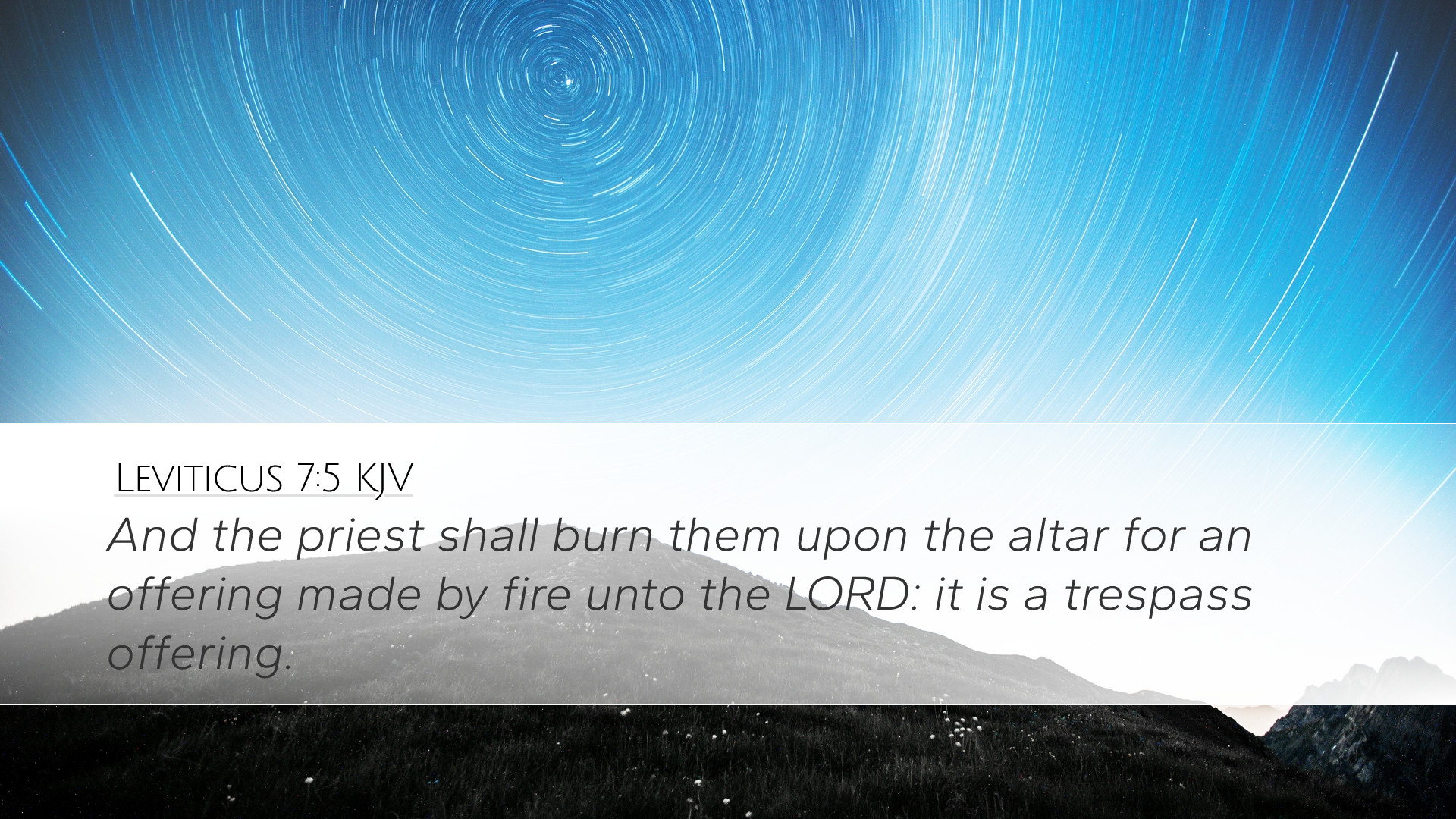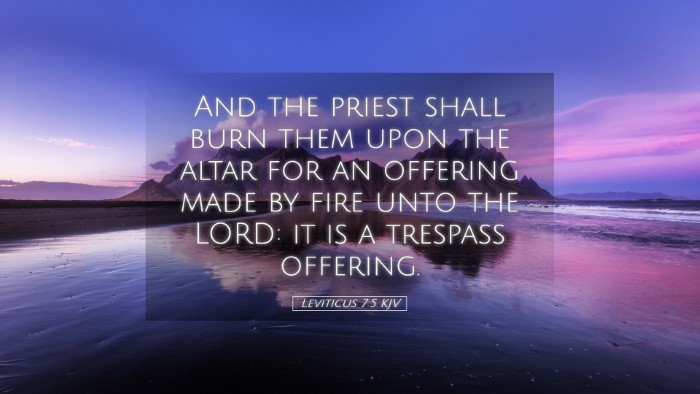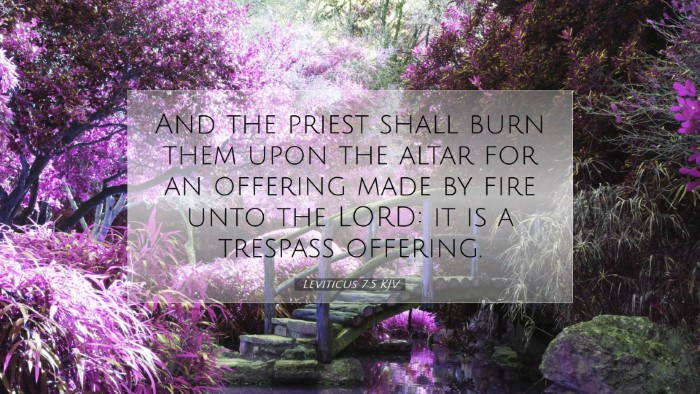Commentary on Leviticus 7:5
Verse Reference: Leviticus 7:5 - "And the priest shall burn them upon the altar: it is the food of the offering made by fire for a sweet savour: all the fat is the Lord's."
Introduction
This verse falls within the sacrificial laws given to the Israelites, emphasizing the sanctity of offerings and the specific instructions regarding the fat. The offerings serve not only as acts of thanksgiving and atonement but also as means of divine communion. In understanding this verse, insights from classical commentaries serve to illuminate its theological and practical significance.
The Meaning of Fat in Sacrificial Offerings
The fat of the sacrifices has been historically regarded with utmost reverence. Matthew Henry notes that the fat was considered the best part of the sacrifice, and thus, was reserved for God, symbolizing the best that believers have to offer. This sacrificial act reflects the principle of giving one's best to God.
- Symbol of Abundance: The fat represents abundance and richness, serving as a symbol of God's provision. Albert Barnes emphasizes that it signifies the bountiful blessings God bestows upon His people.
- Holiness and Separation: Adam Clarke provides valuable insight into why fat was prohibited to be consumed by the people. It underscores a divine separation; what is holy is reserved for God alone. This separation instills a sense of reverence and respect for God's commands.
Burning on the Altar
In this verse, the act of burning the fat upon the altar symbolizes the complete dedication of the offering. Matthew Henry elaborates on the notion of burning as a means of pleasing God, representing a ‘sweet savor,’ indicative of God's acceptance. The offerings signify entire devotion to God, reinforcing the covenant relationship.
- Communion with God: The aroma of the burnt offerings suggests a welcoming of God's presence. It denotes not only acceptance but also a communion between the divine and the believer.
- Cosmic Significance: Barnes points out that the ritual acts take on cosmic significance, showing that the worship involved is intended to align the worshiper with God’s heavenly realm.
Theological Reflections
Leviticus 7:5 bears much theological weight, presenting several insights relevant for modern theology:
- The Importance of Sacrificial Atonement: This verse reiterates the principle that atonement involves an offering, a recurring theme throughout Scripture. Clarke notes that the offerings represent Christ's ultimate sacrifice, anchoring believers in the understanding of atonement.
- Worship as an Act of Devotion: The burning of fat signifies the worshiper’s intent to honor and glorify God in all aspects of life. Worship transcends mere ritual; it is an act of love and surrender to God's will.
- Divine Ownership: The phrase "all the fat is the Lord’s" underscores the biblical principle of stewardship. Everything belongs to God, and offerings remind the believer of their position as caretakers of God's blessings.
Conclusion
Leviticus 7:5, with its emphasis on the fat as belonging to God and the act of burning upon the altar, conveys profound truths about offerings, worship, and the nature of God. Through the reflections of Matthew Henry, Albert Barnes, and Adam Clarke, we see that this verse calls believers to recognize the importance of giving their best to God, understanding the significance of sacrificial acts, and embracing a life of worship that is pleasing and acceptable to the Lord.
In reviewing this text, pastors, theologians, and students of the Word are encouraged to integrate these insights into their practices of worship and teachings, fostering a deeper understanding and reverence for God in the sacrificial system outlined in Scripture.


